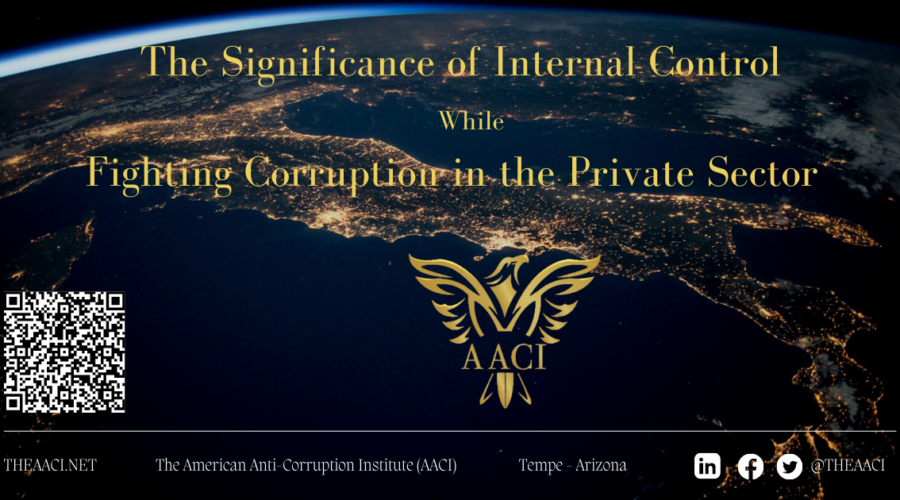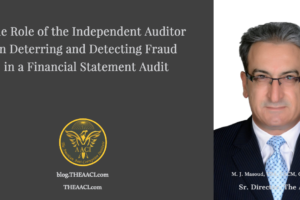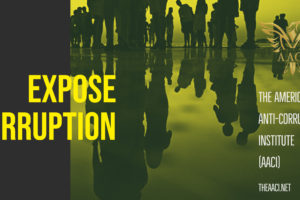Mike J. Masoud
January 15, 2022
The private sector should get engaged in the fight against corruption. In most countries, the private sector is effected and affected by the prevalence of corruption. Article 12 of The United Nations Convention Against Corruption (UNCAC) sets the expectations and requirements the private sector should abide by to prevent corruption. UNCAC, Article 12 (2-f) states:
Ensuring that private enterprises, taking into account their structure and size, have sufficient internal auditing controls to assist in preventing and detecting acts of corruption and that the accounts and required financial statements of such private enterprises are subject to appropriate auditing and certification procedures.
UNCAC, Article 12 (2-f)
Internal Control
In my opinion, the “internal auditing controls” as stated in Article 12 (2-f) is not accurate. Technically and conceptually, it should be internal control, not internal audit control. Internal control as defined by COSO is:
a process, effected by an entity’s board of directors, management, and other personnel, designed to provide reasonable assurance regarding the achievement of objectives relating to operations, reporting, and compliance.
COSO.org
Therefore, the first strategy to fight corruption in the private sector is to establish and maintain a proper and adequate internal control system to achieve its objectives: reasonable assurance regarding the achievement of objectives relating to operations, reporting, and compliance.
In many countries where corruption thrives, regulators do not require listed companies to have their internal control be audited by a CPA firm!
Internal Auditing
The internal audit function can play a critical role in deterring, preventing, and discovering fraud and corruption when it is staffed with qualified people and has a high level of independence. It can also provide senior management with recommendations on how to improve the efficiency and effectiveness of internal control. Nonetheless, the tone set at the top has a big impact on the value a business may get out of its internal audit function. Other things being equal, the poorer the quality of the internal audit function services, the higher the corruption risks.
Educate. Educate. Educate.
The board of directors and executive management should have a basic understanding of internal control so that they can carry out their responsibilities efficiently and make informed choices about internal control and corruption-related issues. The lower the internal control expertise of the board and upper management, the greater the risk of corruption in the firm. The next question is: What is the Internal Control Intelligence of your organization’s board of directors and executive management?











































